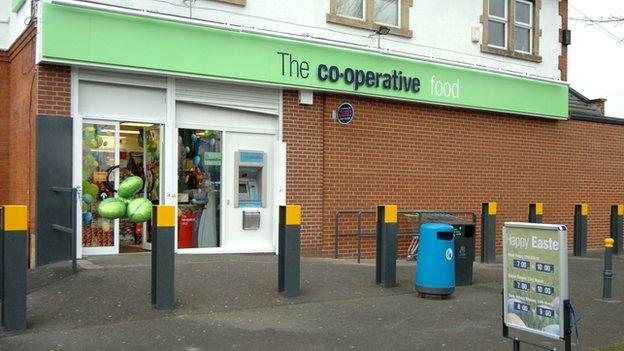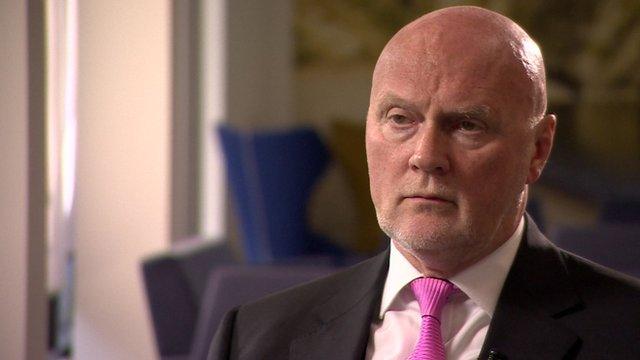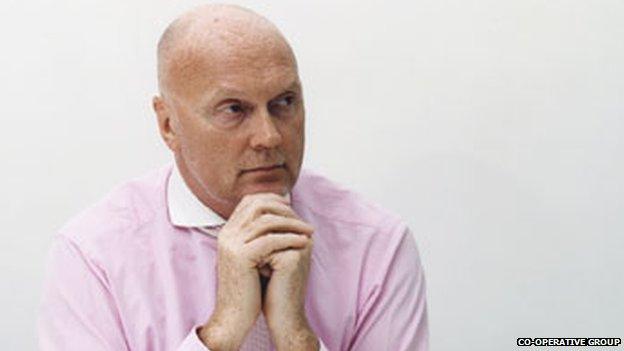Co-op boss: Group 'let down' by former management
- Published
Richard Pennycook blamed past mismanagement for the problems it has faced
The chief executive of the Co-operative Group has blamed past mismanagement of the organisation for the problems it has faced.
Richard Pennycook told BBC Radio 5 live that the group had been "let down" by its former management.
However, recent changes to its structure and governance should rectify that situation, he said.
The organisation had been "undermanaged" in the past, according to Mr Pennycook.
"We let the co-operative movement down in a fairly significant way, after 150 proud years where the Co-op had a reputation for doing the right thing."
It now needed to become "better at business" and return to making profits, he said: "Just applying good management disciplines and taking out costs can improve profitability."
It had been necessary to go through the "painful" process of selling some businesses to repair the balance sheet, Mr Pennycook said.

The Co-op is second to Tesco in the convenience market
The group is focusing on its grocery shops and funerals, and retains a 20% stake in the Co-operative Bank, which is now controlled by US hedge funds.
The Co-op was second to Tesco in the convenience food market, he said, and the quality of its products had increased markedly: "We can absolutely compete with the best."
Mr Pennycook was appointed as the Co-op's interim chief executive early last year before assuming the role permanently.
Allan Leighton, chairman of the Co-operative Group, is in the process of rebuilding the board after being appointed in February as its first independent chair.
His appointment followed the record £2.5bn loss for 2014 that was caused largely by the crisis in the group's banking business.
The former Royal Mail chairman will preside over his first annual meeting of the Co-op on Saturday.
Co-op members will vote on appointing three directors to the board. They are: former Labour minister Hazel Blears; Ruth Spellman, chief executive of the Workers' Educational Association; and Paul Chandler, former chief executive of the fair trade group Traidcraft.
Skills and experience
Mr Pennycook said he was both "surprised and delighted" that three candidates had been found.
"The first principle of the governance reform is that anybody going onto the board had to have the requisite skills and experience," he said.
However, he said the Co-op was yet to take its seat on the board of the Co-op Bank.
An external candidate may be appointed to the position if no one on the Co-op board had the necessary skills, Mr Pennycook said.
"We don't know yet whether we will have somebody on our group board with the qualifications to go on to the banking board. If we do, then that would be the right solution to take up our seat. If it happens that we don't, then we'll seek to appoint an independent suitably qualified non-executive," he said.
"We would hope in future years that we have a healthy pipeline of a people who we'd like to represent on the board."
Despite no longer owning the Co-op Bank, Mr Pennycook said it and the Co-op Group shared a name and many members.
Co-operative ethics and values had been enshrined in its governance and he said it could no longer be called the Co-operative Bank in the future if that were ever to change.
- Published9 April 2015

- Published19 February 2015
